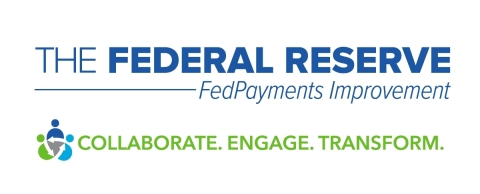Federal Reserve System Announces Industry-Recommended Definition of Synthetic Identity Fraud
Federal Reserve System Announces Industry-Recommended Definition of Synthetic Identity Fraud
CHICAGO--(BUSINESS WIRE)--The Federal Reserve today announced an industry-recommended definition of synthetic identity fraud, which was developed by a focus group of fraud experts in response to a widespread issue: differing definitions in use make it difficult to identify and address this type of fraud.
“A shared understanding of what constitutes synthetic identity fraud is expected to improve its detection, measurement and mitigation in the payments industry,” said Jim Cunha, senior vice president, Federal Reserve Bank of Boston. “Consistent use of this definition within and across organizations can enable us to discuss, identify and classify synthetic identity fraud in a similar manner.”
The industry-recommended definition of synthetic identity fraud (SIF) is the use of a combination of personally identifiable information (PII) to fabricate a person or entity in order to commit a dishonest act for personal or financial gain.
Visit FedPaymentsImprovement.org to learn more about the definition, as well as PII elements that may be used to create a synthetic identity, common uses of synthetic identities, and ways the payments industry can apply the recommended definition.
About the Federal Reserve and Payments
As the U.S. central bank, the Federal Reserve System provides payment services and seeks to foster the stability, integrity and efficiency of the nation’s monetary, financial and payment systems. In 2013, the Federal Reserve initiated a broadly collaborative effort to enhance the end-to-end speed, security and efficiency of payments in the United States. The 2015 Strategies for Improving the U.S. Payment System paper defined five desired outcomes and strategies for pursuing advancements in speed, security, efficiency and international payments through stakeholder collaboration. For more information, visit FedPaymentsImprovement.org.
Note: The synthetic identity fraud definition was developed by a cross-industry focus group to provide a consistent way to identify and classify this type of fraud across the payments industry. This definition of synthetic identity fraud is not intended to result in any regulatory or reporting requirements, imply any liabilities for fraud loss, or confer any legal status, legal definitions, or legal rights or responsibilities. While use of this definition throughout the industry is encouraged, adoption of the definition is voluntary at the discretion of each individual entity. Absent written consent, this definition may not be used in a manner that suggests the Federal Reserve endorses a third-party product or service.
Contacts
Mike Adleman
Federal Reserve Bank of Chicago
(312) 322-2934
Michael.Adleman@chi.frb.org
Maryellen Thielen
Federal Reserve System
(312) 322-4427
maryellen.thielen@chi.frb.org
